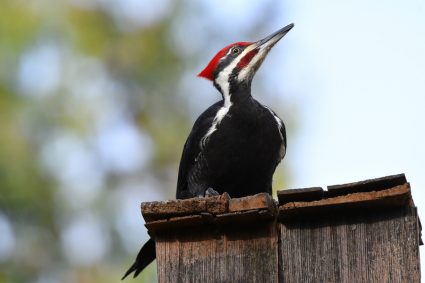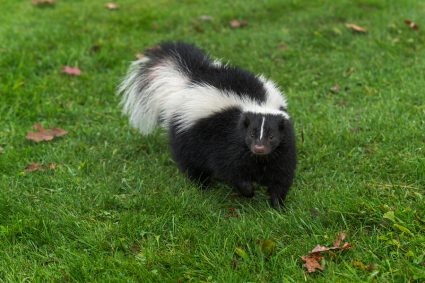
Raccoons might seem cute and playful, but these furry creatures can wreak havoc in your garden, damaging plants and digging up lawns. If you’re tired of these mischievous visitors, this comprehensive guide will help you learn how to keep raccoons out of the garden effectively and humanely.
To keep raccoons out of your garden, use a combination of methods including natural repellents like peppermint oil and vinegar, physical barriers like fencing, and motion-activated devices. Modify your garden environment by securing trash cans and removing potential food sources. If necessary, consider hiring professional wildlife services. Regularly check your garden for signs of raccoon activity and maintain your deterrent methods.
Recognizing Raccoon Activity
Before you can take action, it’s important to determine whether raccoons are indeed causing problems in your garden. Some key signs to look out for include:
- Paw prints and scratch marks: Raccoons often leave their prints and scratch marks on woodwork, roofs, and other possible entry points.
- Stray garbage or food scraps: Raccoons are notorious for rummaging through trash cans for food. If you find knocked-over trash cans or scattered garbage in your yard, it’s a clear sign of their presence.
- Holes in the lawn or mulch pile: Raccoons dig holes in search of grubs and worms. Multiple holes in your lawn, yard, or mulch pile could indicate raccoon activity.
- Damage to plants: Raccoons are particularly attracted to sweet corn and may climb the stalks and tear them down to access the corn. They can also consume other fruits and vegetables in your garden.
- Rolled-up turf: Raccoons often roll up newly laid turf when looking for worms and grubs.
- Droppings: Raccoon droppings are cylindrical with broken or rounded ends, dark in color, and typically contain berry seeds and signs of trash.
Effective and Non-Harmful Deterrence Methods
Once you’ve confirmed that raccoons are the culprits, you can employ a variety of effective and non-harmful ways to deter them from entering your garden.
Natural Repellents
Raccoons have a keen sense of smell and dislike certain strong odors. Some effective scent-based repellents include:
- Peppermint oil
- Cayenne pepper
- Ammonia-soaked rags
- Vinegar
- Garlic or onion mixtures
You can create mixtures or solutions with these substances and spray them around your garden, plants, and other areas where raccoons are likely to enter. Remember to reapply these solutions regularly, especially after rain, to maintain their effectiveness.
Physical Barriers
Installing fencing around your garden can help deter raccoons. Chicken wire or electric fencing can be effective. Ensure that the fence is high enough (at least 4 feet) and buried at least a foot deep in the ground to prevent raccoons from climbing over or digging under it. Electric fencing is particularly effective, with one wire 4-6 inches above ground level and another wire about 1 foot above ground level.
Ultrasonic Motion-Activated Devices
These devices emit high-frequency sounds that are unpleasant to raccoons but inaudible to humans. They can be easily installed in your garden and will deter raccoons without causing harm.
Light Deterrents
Raccoons are nocturnal animals and can be deterred by bright lights. Install lights around the garden’s perimeter, positioned about 10-15 inches up from the ground.
Epsom Salt
Spread Epsom salt both inside and surrounding your vegetable garden. Raccoons generally keep a safe distance from the smell of Epsom salt.
Planting Deterrents
Planting certain plants, like cucumber or squash, around your garden can deter raccoons, as they don’t like walking on the prickly vines.
Motion-Activated Sprinklers
These sprinklers can be set up to spray water when raccoons approach, scaring them away.
Modifying Your Garden Environment
To make your garden less appealing to raccoons, it’s essential to modify your garden environment:
- Secure trash cans: Use tightly-fitting lids, strap them down with bungee cords, or weigh them down with heavy objects.
- Remove potential food sources: Eliminate access to compost piles, bird feeders, pet food bowls, and fallen fruits or nuts from trees.
- Install fencing: Use regular or electric fencing to prevent raccoons from entering your garden.
Professional Wildlife Services
If you’re unable to manage the raccoon problem yourself, consider hiring a professional wildlife service. Companies like Orkin Wildlife Management, Critter Control, and Terminix offer wildlife control plans to help you remove raccoons and keep them out. They provide professional assistance in dealing with raccoon problems and ensure the animals are removed humanely.
Conclusion
Raccoons are intelligent, adaptable creatures, and keeping them out of your garden may require a combination of methods. With the right strategies and persistence, you can protect your garden from these mischievous visitors. Remember to regularly check your garden for signs of raccoon activity, reapply repellents, and maintain physical barriers to keep these critters at bay.
Frequently Asked Questions
How often should I reapply natural repellents?
Natural repellents should be reapplied every few days or after a heavy rain, as they can be washed away or their scent can fade over time.
Will ultrasonic motion-activated devices harm my pets?
No, ultrasonic motion-activated devices are not harmful to pets. They emit high-frequency sounds that are inaudible and non-harmful to humans and most pets. However, if you have pet rodents, you may want to consider another deterrent method, as the high-frequency sounds may distress them.
Can I use any type of light as a deterrent?
Bright, motion-activated lights are most effective. Raccoons are nocturnal and are more likely to be deterred by a sudden bright light. Regular garden lights may not be as effective as raccoons can get used to them over time.
Will the smell of Epsom salt harm my plants?
No, Epsom salt will not harm your plants. In fact, it can be beneficial to many types of plants by providing them with magnesium, which is vital for plant health.
How high does the fence need to be to deter raccoons?
The fence should be at least 4 feet high to deter raccoons. It should also be buried at least a foot deep to prevent raccoons from digging under it.
What should I do if a raccoon bites me?
If a raccoon bites you, seek medical attention immediately. Raccoons can carry diseases such as rabies. Clean the wound with soap and water, apply an antibiotic ointment, and cover it with a clean bandage until you can get medical help.











